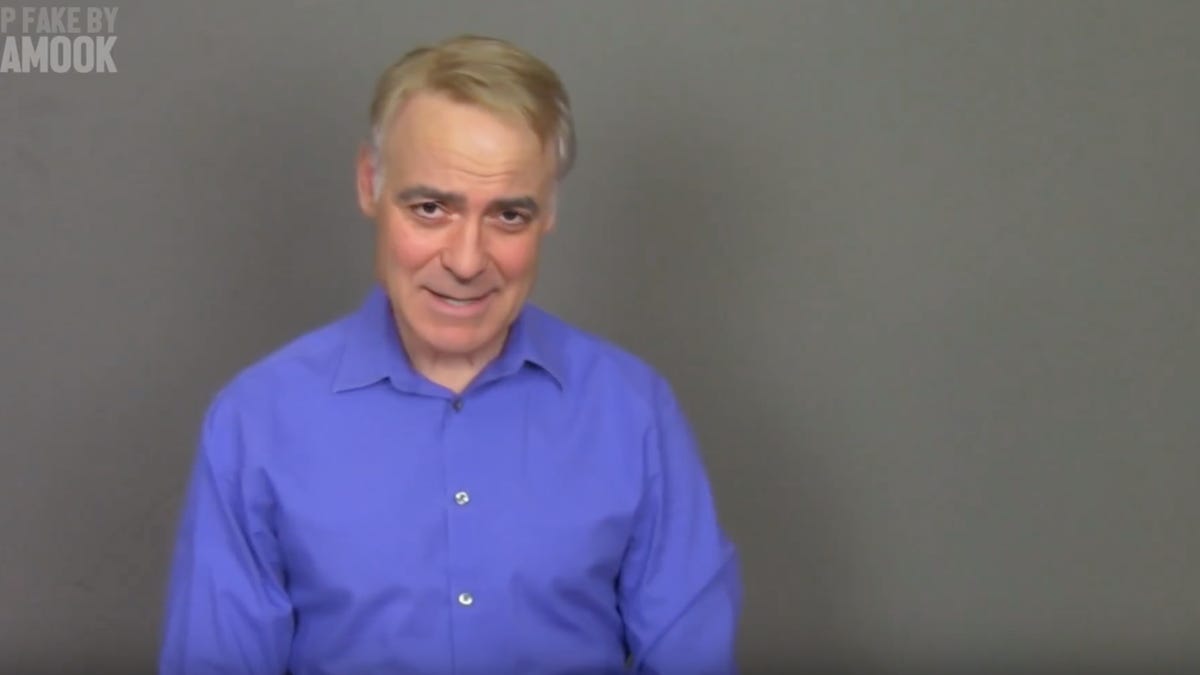This deepfake shows an impressionist taking on 20 celebrities, convincingly
George Clooney, Colin Firth, Ian McKellan, Robert De Niro and Arnold Schwarzenegger are among the celebrities taken on by this voice actor using deepfake software.

Deepfake software allows a voice impressionist to accurately portray George Clooney.
Actor Jim Meskimen has released a video on YouTube giving a "deeper" look at his skills as an impressionist. The voice work is all his, but thanks to deepfake software, he also takes on the facial features of 20 celebrities -- and becomes recognizably those people.
Deepfakes, video forgeries that make people appear to be doing or saying things they didn't, are the moving-picture equivalent of bogus images created with programs like Photoshop. Deepfake software has made manipulated videos accessible and increasingly harder to detect as fake.
The video shows Meskimen recite his poem "Pity the Poor Impressionist" as 20 celebrities, using deepfake visuals by SHAM00K.
He convincingly portrays John Malkovich, Colin Firth, Robert De Niro, Tommy Lee Jones, Nick Offerman, George Clooney, Christopher Walken, Anthony Hopkins, Dr. Phil, Nicholas Cage, Arnold Schwarzenegger, Morgan Freeman, Bryan Cranston, Christoph Waltz, Joe Pesci, Jack Nicholson, George W. Bush, Ian McKellen, Ron Howard and Robin Williams.
Meskimen portrays Ian McKellan using deepfake software.
Given that they're becoming increasingly sophisticated, deepfakes are being investigated by Congress, following the appearance of doctored videos of US House Speaker Nancy Pelosi. There are also fears that deepfakes could escalate the fake news campaign during the 2020 US presidential race.
Social media companies like Twitter and Facebook are also coming under pressure to find ways to more quickly detect and remove deepfakes from their platforms, along with abusive content, terror-related content, misinformation and fake news in the lead-up to the election.

